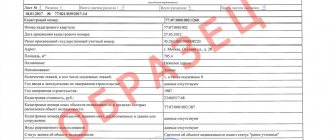Is there a reason?
The social apartment is owned by the municipality (as opposed to a privatized apartment, which belongs to a specific citizen or legal entity).
The tenant (alone or with his family) lives in the premises under a social tenancy agreement, which the city government can unilaterally and forcefully terminate. Paragraph 4 of Article 83 of the Housing Code clearly states the grounds that give a legal right to eviction.
1. Use of housing for other purposes
The residents turned the premises into a commercial warehouse, converted them into a car repair shop, a hostel for migrants, etc.
2. Actual non-residence
A person has not been living at his place of registration for more than a year and does not appear in a social apartment. To prove this in court, you will have to work hard. Our practice proves that it is very difficult to discharge a non-resident from a municipal apartment, but with a legally competent approach it is possible.
IMPORTANT! If a person has acquired ownership of housing (bought, received as a gift or inheritance, won the lottery), then he is obliged to voluntarily check out of the social apartment.
3. Utility debt
Failure to pay utility bills for more than 6 months is a valid reason for eviction. But the judge will certainly take into account whether the debtor tried to negotiate a deferment and whether he has a valid reason for non-payment, for example:
- delay in payment of earnings;
- layoffs and inability to find a job (official status of unemployed);
- long-term stay in a medical institution (at home) with a serious illness;
- disability with loss of ability to work;
- obtaining low-income status (single mother, large families, etc.).
ON A NOTE! A valid reason is always documented in court. If you do not know what documents to collect as evidence, contact a housing lawyer.
4. Deprivation of parental rights
Based on Article 71, paragraph 3, parents deprived of their rights must live separately from their children. And in 98% of cases, the judge makes a decision on resettlement.
5. Damage to property and violation of residence rules
Intentional and repeated damage to municipal property, as well as long-term infringement of the interests of neighbors, are usually considered in conjunction with other grounds. Let’s say that a chronic alcoholic who has turned his apartment into a brothel, does not pay for utilities, and gets into rows almost every day can be evicted from social housing.
Is it possible to discharge a person from a municipal apartment:
A municipal apartment is the property of the municipality (city). As a result, none of the residents is the owner of such real estate. This is the main difference between the deregistration procedure and similar actions when deregistering a person registered in a privatized apartment. There are two options for discharge: voluntarily or forcibly (without consent). Let's look at both.
Voluntarily
The simplest and fastest scheme, in which, in fact, only the applicant’s passport and his personal presence are required (and even then, the latter is not always true). Based on the Constitution of the Russian Federation, every person has the right to move freely. As a result, he can check out at any time, regardless of who the owner is. The consent of the apartment owner is not required for this.
The exception is situations involving the discharge of minor children. To deregister them, you will need permission from the guardianship authorities.
You can voluntarily register “to nowhere” (this provision is not relevant for minor children) or immediately register at another address, which will automatically cancel the previous registration.
One should take into account the fact that there is also such a thing as temporary registration. It can exist simultaneously with a constant. It is used when a resident needs to move to another place for a relatively long period of time, for example, to get education, work, and so on.
Temporary registration does not imply mandatory voluntary or forced eviction from a municipal (or even privatized) apartment. This is only an indicator of a person’s place of temporary residence. Such registration, as the name suggests, has a certain “expiration date”, after which it is necessary either to return to the apartment where the person has permanent residence registration, or to renew (register for a new) temporary registration.
Without agreement
As easy as it is to check out voluntarily, it is just as difficult to deregister a resident forcibly. The problem is further aggravated by the fact that a municipal apartment does not belong to its residents, which means that only its owner, the municipality, can initiate legal proceedings. In such a situation, the problem is almost always resolved only through the courts.
The municipality is rarely interested in evicting people from municipal apartments. As a result, residents will have to collect very strong evidence that the person they plan to deregister really deserves it.
How to evict your ex-spouse after divorce?
In order to discharge your ex-spouse from a municipal apartment, you will have to find grounds, because the termination of family ties (divorce) is not a reason for evacuation. Since the apartment is owned by the city, at the first stage the municipality decides whether to resettle the ex-spouses or not. If he is not against living together, he will have to seek the truth in court.
EXAMPLE. The Ivanov spouses living under a social tenancy agreement divorced. The woman refused to voluntarily return to her mother’s one-room apartment, so the husband, as a responsible tenant, began to think about how to get his ex-wife out of the municipal apartment. He approached the owner, represented by the city authorities, with a request for resettlement, but was refused. A lawsuit did not help either: there were simply no grounds for eviction - the wife regularly paid for her share of the utilities, lived permanently, was not deprived of parental rights, etc.
Judicial practice on eviction issues
Individuals and legal entities can apply to the judicial authorities in case of violation of their legitimate interests on the basis of Article No. 3 of the Code of Civil Procedure of Russia. Municipal associations are recognized as organizations that have a subjective form of government. Accordingly, they are also authorized to defend their rights in court.
- Providing another type of housing, provided that it is comfortable. As a rule, proceedings are initiated in the event of demolition of a house or reconstruction.
- Discharge of a tenant to a less comfortable room. Acceptable in relation to persistent defaulters of housing and communal services.
- Eviction without assistance in finding another apartment.
In a situation where the defendant has irrefutable grounds for violating the rights of minor children (for example, discharge without the consent of the guardianship authorities), the court decision can be challenged.
Discharge of children from social housing
Separately, it is worth mentioning the complexity of cases related to children’s discharge. The law protects the interests of minors especially carefully, and in order to discharge a child from a municipal apartment, you will have to obtain the approval of the social security authorities.
To receive a positive decision from social security, it is necessary that:
- after discharge, the child was required to be registered in a new place;
- the new living conditions were no worse than the old ones;
- the move did not infringe on the children's interests.
You will need to collect and provide an impressive package of documents, and a lawyer from the First City Legal Aid Service is ready to help with this. He will also act as a confidant during negotiations with representatives of social security and will make every effort to obtain a positive conclusion. If you don’t know how to remove a minor child from a municipal apartment, call and get free answers.
What documents are required?
How can you discharge a person from a non-privatized apartment, what documents should you prepare?
If the procedure is carried out on a voluntary basis, then it is necessary to submit a certain package of papers :
- passport of the person being issued;
- an application filled out according to a standard form on site;
- documents for living space technical plan;
- social rental agreement;
- certificate of all those registered;
- military ID and other additional documents.
Deregistration of certain categories of citizens, for example, children, requires the submission of additional documents: permission from the guardianship and trusteeship authorities and confirming the presence of a new place of registration.
You can learn about the specifics of discharging a disabled person, a person in prison, or a deceased person from an apartment on our website.
First steps and going to court
A free consultation with a lawyer on housing issues online or by phone +7495-53-222-13 is the first thing everyone who decides on a housing issue with an extract should do.
You will receive qualified explanations and answers to any questions, taking into account specifics, including:
- How to discharge your ex-husband from a municipal apartment if he lives at a different address but pays for utilities?
- How to relocate a minor after parents divorce?
- How to prove the fact of non-residence?
- How to discharge a tenant from a municipal apartment on the initiative of those who are not included in the social rent order?
With the help of a lawyer, you can best prepare for court hearings:
- collect a complete package of documents;
- file a well-drafted claim;
- defend interests at meetings in a reasoned manner;
- you will achieve eviction not only on paper, but also in reality.
Ask a lawyer for advice right now to gain time and solve the problem legally and in a civilized manner!
Features and nuances
Is it possible to force a person out of a municipal apartment? The procedure for deregistration from a municipal apartment has some peculiarities, since it can take place not only at the request of the resident, but also against his will in cases specified by law.
How to be discharged from a municipal apartment through the court? Discharge may be carried out by court decision in cases where the resident:
- for a long time did not make payments for the use of the premises and utilities;
- created inconvenience to neighbors;
- does not actually live in the provided municipal premises;
- deteriorated the premises or used them for other purposes;
- ceased to be a member of the employer's family (read about the discharge of an ex-husband or wife).
In the case of a voluntary deregistration, the application can be submitted by the deregistered person or his representative using a notarized power of attorney, and the owner, neighbors, employer and other interested parties can forcefully apply for this in court.
Can they be discharged from a municipal apartment without the presence of the person being discharged? When extracting a court decision, the personal presence of the person being discharged is not required, since it is carried out by the interested person if he has a court decision.
Thus, deregistration in municipal housing can occur voluntarily or compulsorily.
However, there must be reasons for this and evidence of the existence of such reasons.
The extract is free of charge and usually does not take much time.
In any business, there must be order that must be followed for a positive final result. Registration in an apartment that directly belongs to the municipality has its own characteristics and another side of complexity.
Where to contact
There are several ways to register in a premises intended for housing, which is taken for use on the basis of a social tenancy agreement:
- at the regional department of the Federal Migration Service;
- at the nearest Multifunctional Center;
- at the Housing Administration passport office.
You can register through the State Services website. This method is convenient because it does not take much time and does not require leaving your home or work office. After accepting the documents, the citizen must visit the municipal office of the FMS or MFC.
To register in premises intended for residence, you must prepare a number of documents:
- valid passport;
- confirmation of discharge from previous place of residence;
- military service ticket;
- information about family members;
- certificate confirming marriage (for registering families);
- a certificate confirming the birth of children (if their age is less than 18 years old); for children over 14 years old, personal presence during registration procedures is required;
- landlord's consent;
- application for registration.
All papers must be reliable and reflect all the necessary information about the person being registered. If a counterfeit or discrepancy is detected, you will not be able to register until it is corrected. Documents must be submitted both in original and copies.
To register, you must be personally present during registration. If for any reason this cannot be done, then a notarized power of attorney must be presented.
We suggest you familiarize yourself with: Documents to the bank for a mortgage to purchase an apartment
Consent from the employer is provided in free written form. This happens directly to the passport office employee. The permit must contain all the information about the citizen being registered, as well as the real address of the municipal apartment.
Procedure
It is possible to register in housing belonging to the municipality after following the procedure.
- Collection of registration documentation.
- Submission of all documents to one of the authorities (passport office, MFC, FMS or electronic portal).
- Waiting for approval and production of documents confirming registration.
- Obtaining documents confirming registration (certificate or stamp in passport).
If the documents were submitted through the electronic portal of State Services, then a date is set when the citizen must visit the FMS to complete registration actions.
Timing and cost
The period for obtaining registration in municipal housing depends on the method of submitting documentation. On average it takes 3-8 business days. The fastest way to register is the electronic website of the State Services and the department of the Federal Migration Service. If the documentation was submitted in another way, it will take the maximum number of days.
If a citizen does not provide some documents, but simply indicates their data, then the registration result will be available in more than 8 working days.
Anyone who meets the prescribed standards has the right to register in a municipal apartment.
To the husband (wife)
Registering to live with your husband or wife does not take much time and is carried out without hindrance. To do this, you need to provide the original marriage certificate and the presence of both parties. All registration documents must have the signatures of both the husband and wife.
Minors
A child under the age of majority is registered in housing owned by the municipality without obtaining written permission from other persons. If mom and dad have different registrations, then one of them will need a document confirming that he is not registered with him.
To register, you will need the following documents:
- document confirming the birth of a child;
- passports of father and mother;
- marriage document;
- certificates of registration of parents at a particular address.
In order for a child to have registration in a municipal apartment where there are several residents, including his parent, there is no need to obtain permission from all those registered.
If the child is an orphan, then he is registered where the person who took guardianship of him lives, for example, with his own grandmother.
Relatives
It is possible to register with close relatives living in municipal housing only after receiving the written consent of all registered citizens. In addition, the landlord must also give written consent to registration actions.
The employer himself has the right to register his close relatives (mother, father, brother, sister) upon personal petition. After this, they can claim a share in this municipal-type premises.
Not related
If the person being registered is not a relative and wants to register in a municipal apartment, then for this it is necessary:
- consent of everyone registered in this room;
- consent of the administration that manages this residential premises;
- compliance with the standards for the provision of living space per registered person.
It should be noted that there is a risk of a stranger registering in a municipal apartment. After completing the registration process, he can take part in the privatization of this premises. But a registered citizen can only be evicted with his consent; otherwise, the entire procedure takes place through the courts.
Registration can be refused only if the rules are not followed or the number of square meters does not allow for one more person to be accommodated.
Temporary registration
It is not difficult to obtain a temporary registration in housing owned by the municipality. It is equivalent to permanent registration, but is limited to a temporary period. The period for which it is issued depends on the personal agreement between the landlord and the citizen wishing to register. The minimum period is 6 months, and the maximum is 5 years.
There is no need to cancel the registration; after the expiration of the period, it is automatically invalidated. It is possible to register in municipal housing together with permanent registration at another address.







